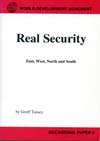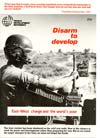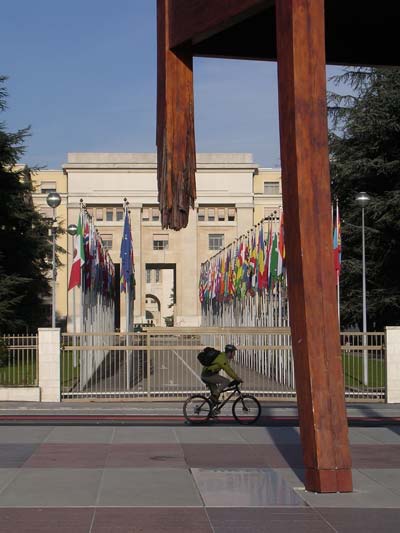
Peace, food and our future
A key challenge this century is to create sustainable ways in which everyone can feed themselves well, in communities that peacefully cooperate with each other. If we humans carry on in the way we have let our leaders manage our affairs to date, then we are likely to see even greater conflict and loss of life this century than before - because of not despite our technological wizardry.
How we meet everyone's food needs will be a key factor in shaping the kind of world we have this century. It is part of a real security agenda I have been concerned with for decades. It goes back to the shocking sight for me, when I was working in Turkey in the early 1980s, of visiting a village where the people could run out of water for some time in the summer when their wells dried up. This in sight of a well-provisioned NATO installation, there as part of an early warning system. Far too much of human ingenuity, creativity, money, research and development activity focuses on better means of killing each other not supporting each other.
After returning from Turkey in the mid-1980s I supported the World Development Movement in the late 1980s / early 1990s in looking at real security. This resulted in a couple of publications - a briefing, Disarm or develop and a paper Real Security - East, West, North and South - and campaigning activities. It also lead to the work with Paul Rogers, prof of Peace Studies at the University of Bradford, and the book A World Divided.
The issues raised then about the need for a much broader understanding of what real human security means are still current. Indeed the Institute for Development Studies argues for using the notion of human security to develop a new post 2015 development framework in a paper - Human Security and the Next Generation of Comprehensive Human Development Goals - produced in May 2012 .
How we produce and distribute food is a fundamental part of achieving real human security. It is clear that the current slogan arising from the plethora of reports on food and farming over the past few years - 'Business as usual is not an option' - applies far more widely. The challenges for future food provisioning and today's inequities in hunger and malnutrition, overweight and obesity are symptomatic of a need for system change. How we approach creating fair, healthy and sustainable food systems is a key part of shifting the way the world works - and a lens to look through to show how to do so. Because for billions at present it doesn't work.
Go to the page 'Food is a key to avoiding World War III' where you can read about the interview on my blog with Julian Cribb on his book Food or War. And click on my blog entitled 'It's time to turn swords into ploughshares, bombs into bread, and soldiers into good Samaritans' for proposals to progressively switch military spending into areas that would protect real human security threatened by pademics, climate change and biodiversity loss
Giant chair with broken leg sculpture outside the United Nations in Geneva - a symbol of opposition to land mines and cluster bombs. These weapons have made farming very hazardous or impossible in many areas where conflicts have raged.
Real Security

The figures in this paper produced for the World Development Movement (now Global Justice Now) in mid-1990 are well out of date but the issues it addresses are not. Click here to download pdf.
World Development Movement

This 4 page pamphlet sums up the arguments in the early 1990s. Click here to download pdf.
Both of these publications came from work done by WDM in the late 1980s to early 1990s.
